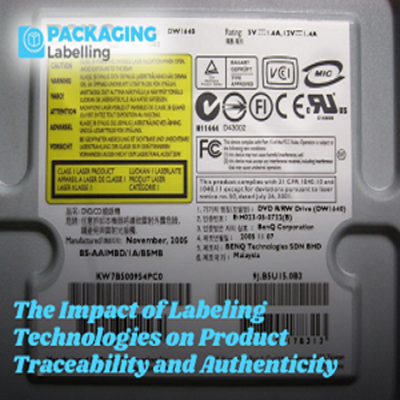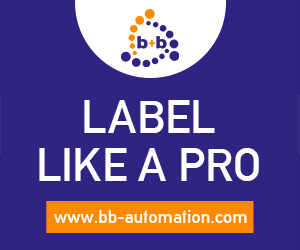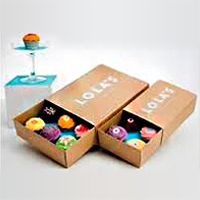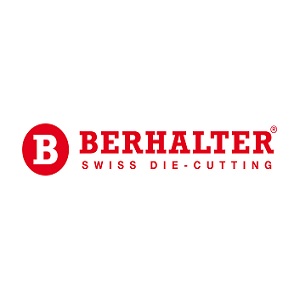The Impact of Labeling Technologies on Product Traceability and Authenticity

In our bustling modern world, where products travel vast distances before reaching our hands, ensuring their authenticity and traceability has become a pressing concern. We're often left wondering about the journey of our products, their origins, and whether they're genuine. This is where labeling technologies step in as the unsung heroes, playing a crucial role in the global supply chain. From barcodes to QR codes and RFID tags, these technologies not only enable us to trace the path of products but also ensure their authenticity, fostering trust and transparency in the market.
Barcodes, the pioneers of labeling technologies, have been around for decades. They are simple, cost-effective, and widely used for product identification. Think of them as the product's unique fingerprint. They store essential information about the product, such as its manufacturer, type, and price, making it easier for retailers to manage inventory and for consumers to track their purchases. Scanning a barcode at the cashier reveals more than just the price; it unlocks a wealth of data, ensuring that the product is accounted for throughout its journey.
However, as technology advanced, so did the need for more sophisticated labeling systems. Cue the Quick Response (QR) codes, which revolutionized the way we interact with products. With a quick scan using a smartphone, consumers can access a wealth of information beyond what's visible on the shelves. From product origins to certifications and even customer reviews, QR codes offer a gateway to transparency, enabling consumers to make informed decisions and fostering a sense of trust in the brand.
Stepping up the game, Radio-Frequency Identification (RFID) tags have revolutionized the world of labeling technologies. These minuscule chips, integrated with distinct identification codes, can be implanted in products, enabling constant tracking across the supply chain. Unlike barcodes or QR codes, RFID tags operate without the need for direct line-of-sight scanning, enhancing their efficiency and adaptability. Whether it's overseeing the temperature of perishable items or preventing counterfeit practices, RFID technology guarantees comprehensive product monitoring, thus minimizing the possibilities of fraud and unauthorized interference.
While these labeling technologies are instrumental in enhancing traceability and ensuring product authenticity, challenges persist. One such challenge is the threat of counterfeit products infiltrating the market. Counterfeiting not only affects the revenue of legitimate businesses but also poses significant risks to consumers' health and safety. However, the integration of advanced labeling technologies has paved the way for anti-counterfeiting measures. For instance, companies have started implementing holographic labels embedded with unique identifiers that are nearly impossible to replicate. These labels act as a visual authentication tool, assuring consumers of the product's legitimacy and quality.
| Labeling as a Branding Tool: Strategies for B2B Companies to Stand Out in the Market |
Furthermore, blockchain technology has emerged as a potent weapon in the fight against counterfeiting. Utilizing blockchain's decentralized and unchangeable ledger, businesses can establish transparent supply chains, allowing consumers to trace a product's complete journey, from its raw materials to the final sale. Any effort to manipulate the product's data becomes instantly apparent, reinforcing consumer faith and assurance in the legitimacy of their purchased goods.
Also, the integration of Artificial Intelligence (AI) and machine learning has enhanced the capabilities of labeling technologies, enabling real-time data analysis and predictive insights. Through AI-powered algorithms, companies can detect anomalies in the supply chain, such as unexpected deviations in product routes or irregularities in packaging. This proactive approach not only prevents potential fraudulent activities but also ensures that products meet regulatory compliance standards, safeguarding consumer well-being.
Moreover, as consumer preferences shift towards sustainable and ethical practices, labeling technologies have also adapted to meet these demands. Eco-labeling has gained prominence as a means to communicate a product's environmental footprint and ethical sourcing practices. With the rise of eco-conscious consumers, companies are increasingly leveraging eco-labels to showcase their commitment to sustainability. From highlighting recyclable packaging materials to indicating carbon-neutral production processes, these labels empower consumers to make environmentally responsible choices, contributing to a more sustainable future.
| Also Read: Safeguarding Authenticity: Anti-Counterfeiting Measures in Packaging |
Additionally, the integration of Near Field Communication technology has further revolutionized the landscape of labeling technologies. By enabling communication between electronic devices in close proximity, NFC tags allow consumers to access detailed product information and interactive content effortlessly. For instance, by tapping their smartphones on an NFC-enabled label, consumers can view product tutorials, explore complementary items, or even participate in loyalty programs, enhancing their overall shopping experience and fostering brand loyalty.
Furthermore, the advent of augmented reality (AR) has opened new avenues for engaging consumers through innovative labeling techniques. By integrating AR-enabled labels, brands can offer immersive product experiences, allowing consumers to visualize how a product fits into their daily lives before making a purchase. Whether it's virtually trying on clothing or visualizing furniture in their living space, AR-powered labels create a dynamic and interactive shopping experience, bridging the gap between the physical and digital realms.
While the benefits of labeling technologies are undeniable, it is crucial to address the concerns surrounding data privacy and security. With the abundance of data generated through these labeling systems, ensuring the protection of sensitive information is paramount. Companies must implement robust data encryption protocols and stringent privacy policies to safeguard consumer data from potential breaches or unauthorized access, fostering a secure environment for both businesses and consumers.
In the ever-evolving landscape of global commerce, labeling technologies continue to redefine the way we perceive product traceability and authentication. From ensuring supply chain transparency and combating counterfeiting to enhancing consumer engagement and promoting sustainable practices, these technologies have become the cornerstone of a resilient and responsible marketplace. By embracing innovation and prioritizing consumer trust, businesses can leverage the full potential of labeling technologies, fostering a seamless and secure shopping experience for consumers worldwide. As we navigate the complexities of a dynamic market, the synergy between technology and consumer needs will continue to shape the future of labeling, setting new benchmarks for transparency, authenticity, and ethical commerce.
Embracing these transformative solutions will not only bolster consumer confidence but also pave the way for a more interconnected and trustworthy global market.









